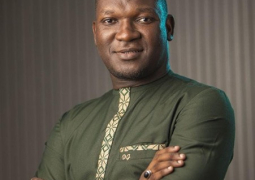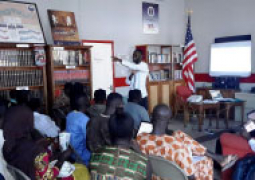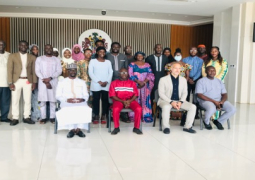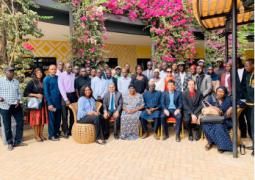
Mr. Dem explained that beneficiary enrolment is being done digitally using tablets. So too, he explained that they are using a software: Management Information System (MIS) and once all the required variables are entered and the photo of principal recipient or the procreator taken, the system will automatically generate an Identity (ID) for the person with a unique ID Number.
In addition, Mr Dem explained that once the information is generated printing of ID cards would become an easy task. Also, he explained that there will be two photos on the ID cards; that of the principal recipient and the procreator with their names and telephone numbers.
“We are with the belief that once the registration process is concluded, the next step which is cash transfer will be a success as issues regarding beneficiary ID cards would have been sorted.
Moreover, he stressed that in order to register beneficiaries, the principal recipient and procreator for each household have to present a valid photo ID such as(national ID card, voters card, Driver’s License or passport) for the enrolment process.
The Nafa Program component of The Gambia Social Safety Net Project (a US$ 31 million project) is jointly funded by the World Bank and the Government of The Gambia.
The National Nutrition Agency (NaNA), Directorate of Social Welfare and Department of Community Development are implementing the Nafa Program as part of The Gambia Social Safety Net Project (SSNP) which aims to strengthen the coordination of social assistance activities, inclusion of the extremely poor in the Nafa Program and build resilience of society's most vulnerable.
The Nafa Program is a combination of Cash Transfer and Social and Behavioural Change Communication (SBCC) that is being implemented in phases.
The first phase involved three Districts (Foni Bintang in West Coast Region, Nianija in the Central River Region and Wulli West in the Upper River Region.) The project is now being rolled out to 17 other districts across the country.
The project is targeting 15,606 extreme poor households which equates to approximately 40 percent of the extremely poor households in The Gambia. The project targets the 20 poorest districts in The Gambia.
The Project Development Objective (PDO) is to improve the coordination of social assistance activities, provide temporary social assistance support to households in rural Gambia, thus, COVID-19 and enhance inclusion of the country's marginalised households in the Nafa Program.
Ida Joof of the Directorate of Social Welfare said the project is aimed at moving beneficiaries from extreme poverty, noting that part of the money when received can be used for feeding and the rest on children’s education, backyard gardening, animal husbandry, entrepreneurship and other meaningful activities. Further, she explained that her Directorate's involvement in the project is key to addressing social issues such as prevention of Gender-Based Violence, domestic and sexual violence, positive parenting and childhood.
Yusupha Jawo, Nutrition Field Officer (NFO) for NaNA based in Farafenni explained in detail that before the enrolment, community validation was conducted and during the process middle names were created for beneficiaries with similar names for the purpose of effectual identification.
Amie Ndow, a beneficiary at Dibba Kunda Wollof said the project would bring peace and unity among families due to the likelihood of violence in households with little or no means of providing three square meals for the family
NdeyFaal, also a beneficiary at Dibba Kunda Wollof urged beneficiaries not to spend the whole amount frivolously but establish petty trading and other meaningful activities before the project comes to an end as the project's aim is the elevation of beneficiary households from extreme poverty.





